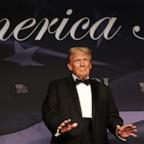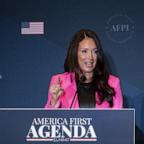Former National Enquirer publisher David Pecker testified that he suspected that multiple women would come forward to shop stories about Trump during Trump's run for president.
"In a presidential campaign, I was the person that thought there would be a lot of women who came out to sell their stories because Mr. Trump was well known as the most eligible bachelor and dated the most beautiful woman," Pecker testified. "It is very common for these women to call up a magazine like the National Enquirer to try and sell their stories. I would hear it in the marketplace through other sources that stories were being marketed."
If those stories emerged, Pecker said he vowed that he would notify Michael Cohen, Trump's then-personal attorney, per their agreement.
According to Pecker, most elements of their agreement -- including running positive stories about Trump and negative stories about his opponents -- were "mutually beneficial" to Trump and Pecker.
"Hillary running for president and Bill Clinton's womanizing was one of the biggest sales ... for the National Enquirer," Pecker said. " It was easy for me to say I was going to continue running those kinds of stories for the National Enquirer."
"It would help his campaign, but it would also help me," Pecker said.
"As I recollect, [Trump] was pleased. Michael Cohen was pleased [about] the way I was going to handle these issues," Pecker said.
Pecker said that prior to the 2016 election, his magazines never caught and killed any stories for Trump.
When pressed by prosecutor Joshua Steinglass, Pecker acknowledged that the catch-and-kill element of the agreement -- buying negative information about Trump then killing the story -- was not beneficial for the National Enquirer.
"How was that going to boost sales of the National Enquirer?" Steinglass asked.
"No, that part didn't help," Pecker said.






